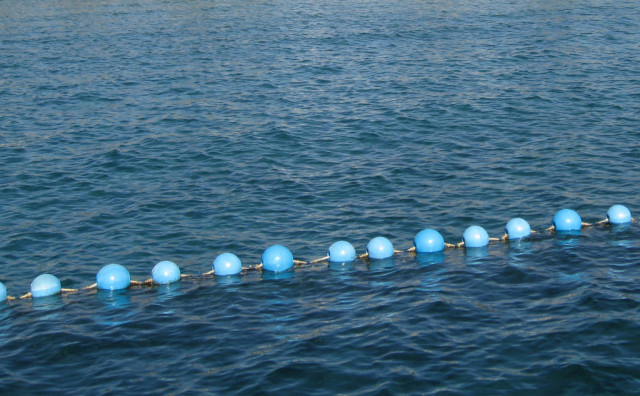'Certifications key to boosting sea trade'
Stakeholders urge compliance with global standards, reforms

KARACHI
The maritime sector in Pakistan holds immense potential, especially through compliance with internationally recognised certifications such as those recommended by the International Organisation for Standardisation (ISO). These certifications could benefit stakeholders and boost the country's sea trade.
Traders in the maritime industry need to acquire these certifications to make meaningful progress in sea trade, which would ultimately strengthen Pakistan's maritime economy. Shipping lines, traders, importers, exporters, and authorities must adhere to relevant rules and regulations to ensure fair access and better use of port and shipping facilities.
Muhammad Najib Balagamwala, Chairman of Seatrade Group of Companies, pointed out that the situation at Pakistan's ports has become unbearable for all stakeholders, including owners, operators, importers, and exporters. He stressed the need for the Ministry of Finance, the Ministry of Ports and Shipping, and the Ministry of Maritime Affairs to implement reforms. These should include reducing dock labour wages to industry levels, streamlining staff at Port Qasim Authority (PQA) and Karachi Port Trust (KPT), and focusing revenue on port improvements instead of unnecessary expenses.
Balagamwala highlighted that all dredgers, despite their high costs, are currently out of order due to mismanagement and corruption in the tendering process, making dredging prohibitively expensive.
Certifications are crucial for ensuring that maritime activities are conducted sustainably and meet international standards. For example, Good Manufacturing Practices (GMP) ensure quality production while minimising cross-contamination and inefficiencies. ISO 14001 (Environmental Management System) helps organisations manage their environmental responsibilities, while ISO 9001 (Quality Management System) promotes operational efficiency and customer satisfaction.
By adopting this, Balagamwala said, "we can improve our operational performance and systems for proper traceability."
Other key certifications include SEDEX (Supplier Ethical Data Exchange), which ensures ethical supply chains in the blue economy, Seafood Processing Standard (SPS), which guarantees the safety and sustainability of seafood products, and the Marine Stewardship Council (MSC) certification, which assures buyers, retailers and general consumers that the fisheries conform to the internationally recognised standard for environmental sustainability.
Similarly, the updated and upgraded version of the Carriage of Goods by Road Act was submitted to the government but remains pending. The Marine Insurance Act was also revised but has yet to receive attention. Only the Carriage by Air Act was amended, with changes made in 2012.
Abdul Rasheed Janmohammed, President of the Bin Qasim Association of Trade and Industry (BQATI) and Chairman of the Pakistan Shippers Council (PSC) at the Federation of Pakistan Chambers of Commerce and Industry (FPCCI), remarked, "The most valuable skill you can acquire is learning to calculate the future cost of current decisions."
He explained that the National Trade & Transport Facilitation Committee (NTTFC), a collaborative body between the public and private sectors, was highly effective in facilitating trade. However, the Ministry of Commerce unfortunately discontinued its function without explanation, depriving the business community of essential trade support.
Janmohammed cited the example of the Carriage of Goods by Sea Act of 1925, which was updated after consulting all relevant stakeholders. The primary issue, the liability regime, was revised and forwarded to the government for approval, but it remains unattended.
He also highlighted that several organisations fall under the Ministry of Maritime Affairs, including the Port Qasim Authority (PQA), Karachi Port Trust (KPT), Pakistan National Shipping Corporation (PNSC), Gwadar Port Authority (GPA), Korangi Fisheries Harbour Authority (KoFHA), Marine Fisheries Department (MFD), Pakistan Marine Academy (PMA), Mercantile Marine Department, Government Shipping Office, and the Port & Shipping Wing in Karachi.



















COMMENTS
Comments are moderated and generally will be posted if they are on-topic and not abusive.
For more information, please see our Comments FAQ